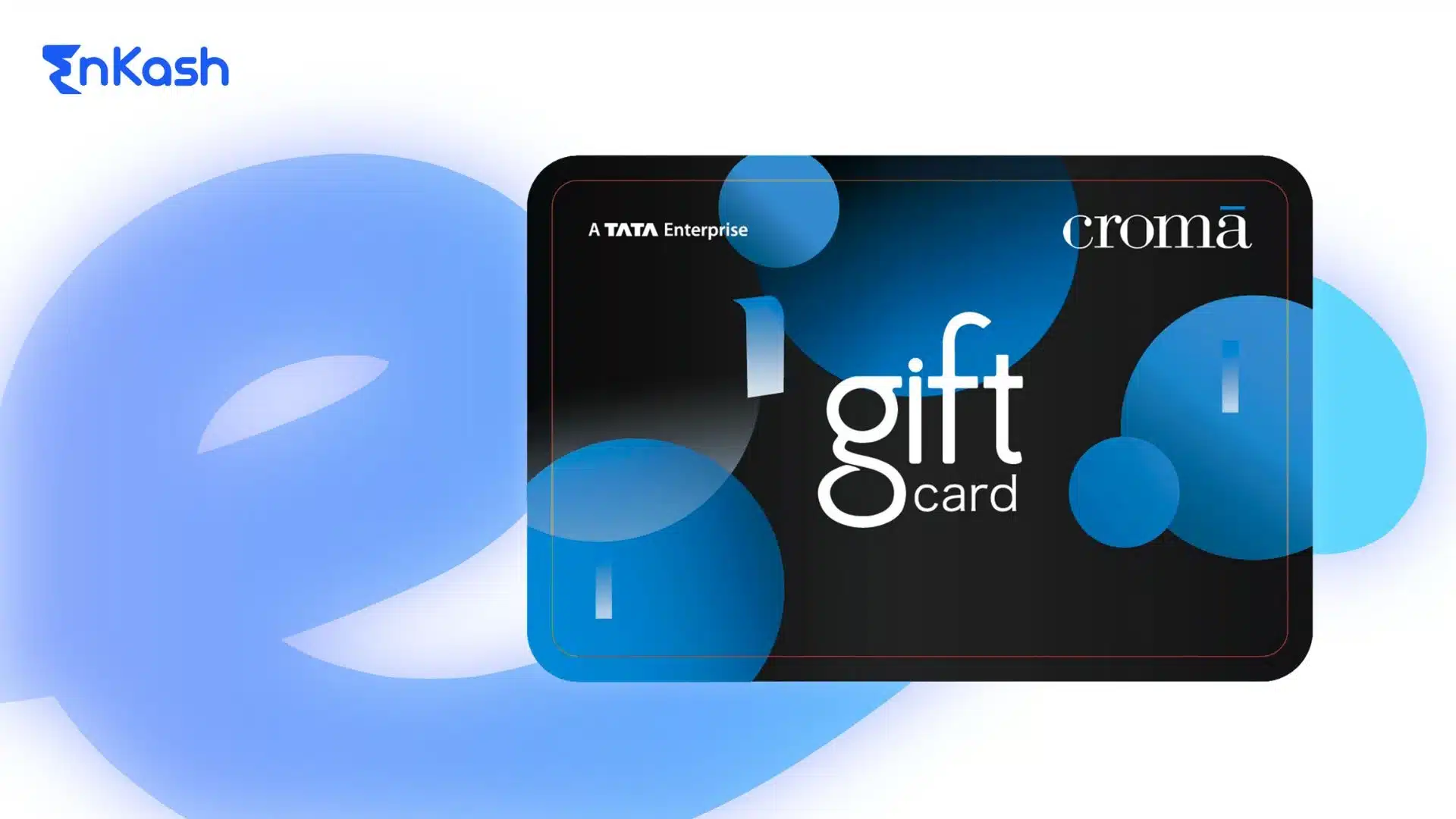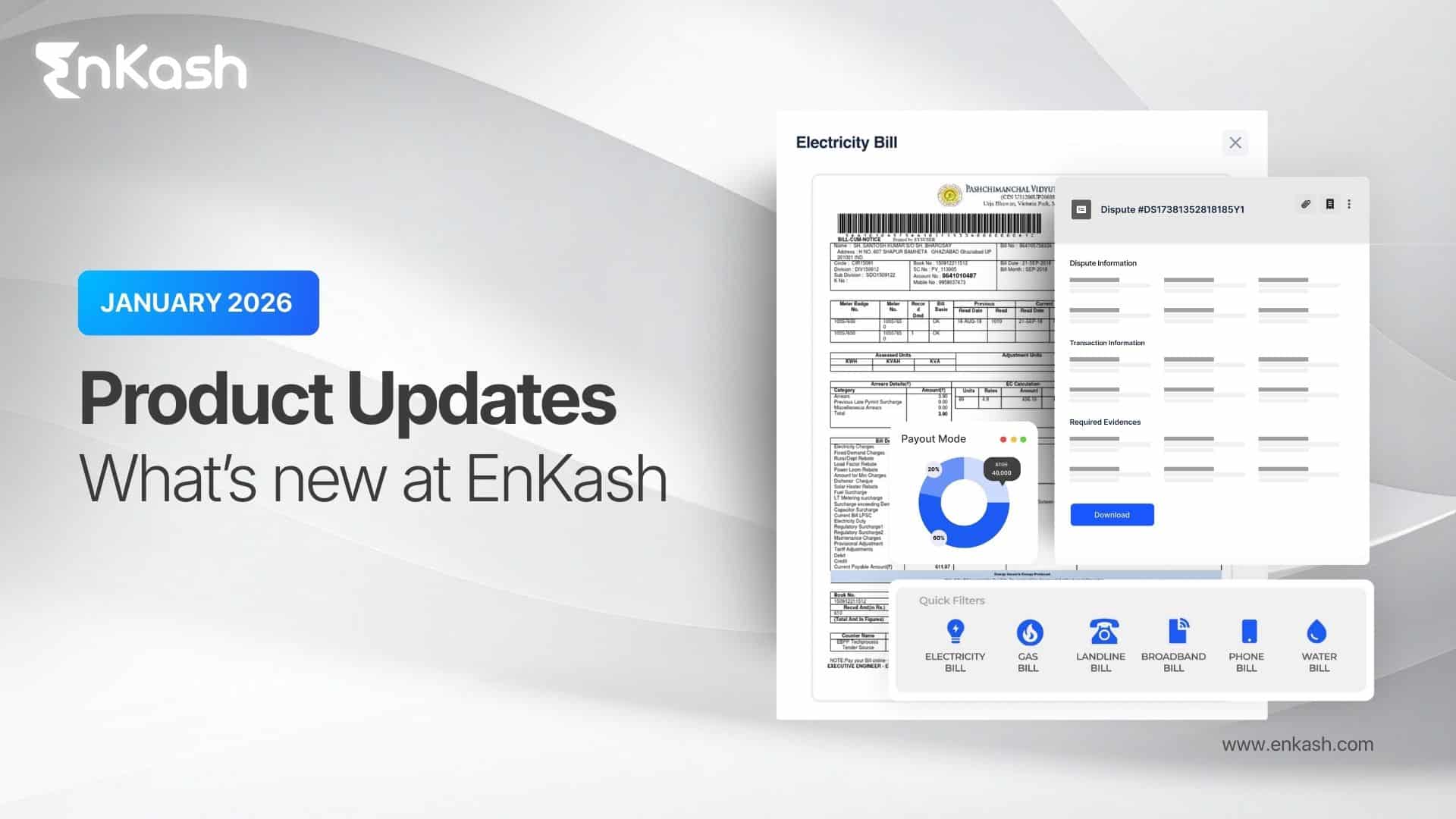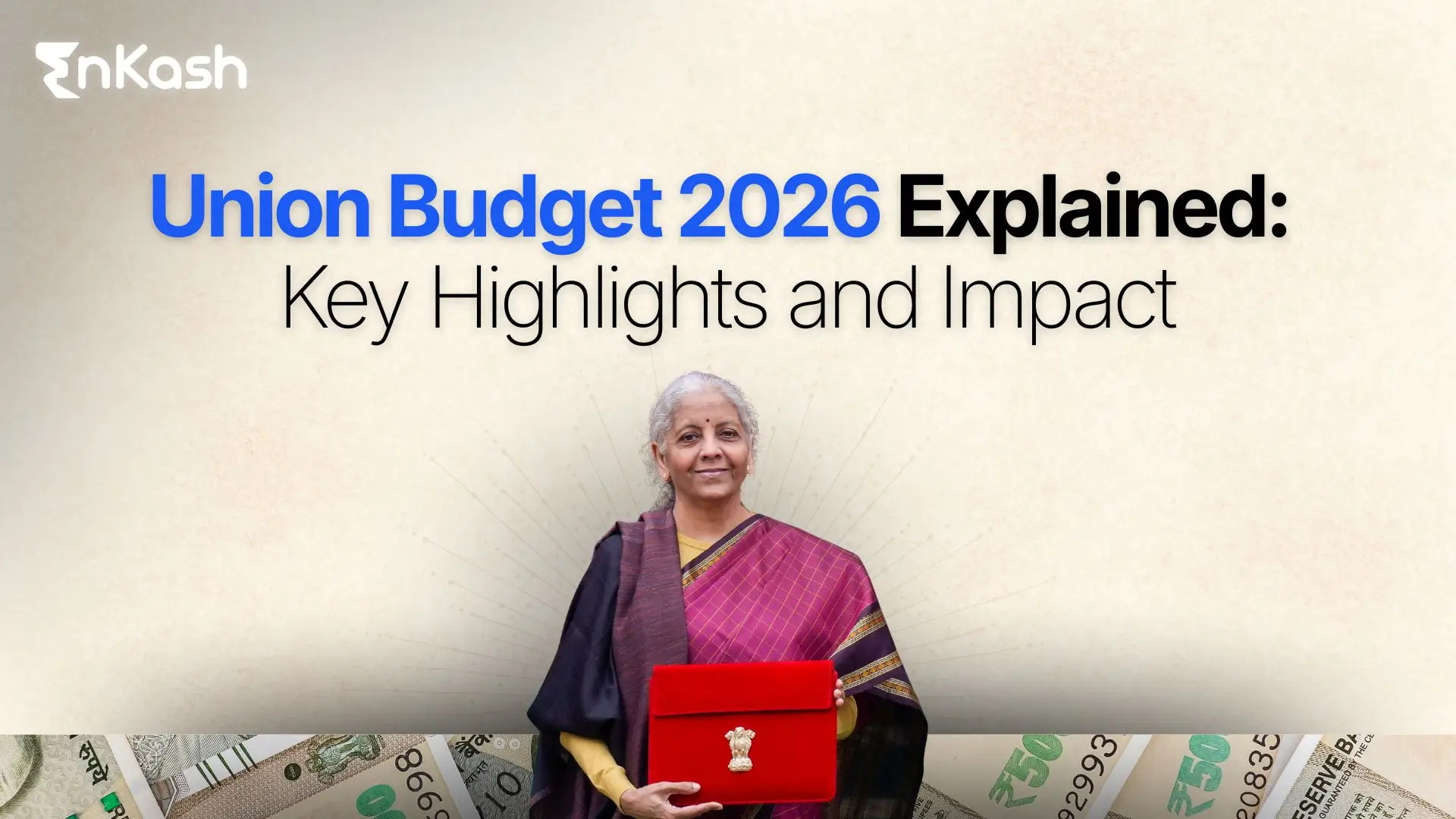Have you ever wondered why you earn reward points on certain transactions but not others? Or why some cards have restrictions based on the type of business you spend at? The answer lies in a little-known code called the Merchant Category Codes (MCCs).
In this blog, we’ll break down everything you need to know about the merchant category code list in India, from its meaning to its impact on your everyday transactions, and why it matters for both businesses and consumers.
What is a Merchant Category Code (MCC)?
MCC’s full form is Merchant Category Code. It is a 4-digit number assigned to a business by card networks (like Visa, Mastercard, or RuPay) based on the type of goods or services the business provides. It’s like a mini-resume for businesses, telling the world what they’re all about.
For example, an MCC of 5411 identifies a grocery store, while 4111 represents local public transportation. These codes are largely standardized globally by networks like Visa and Mastercard, ensuring consistency in how businesses are classified.
These codes are standardised across financial networks and impact how your credit or debit card transactions are categorised.
MCC meaning in banking: In banking, MCCs are used for tracking spending, risk profiling, reward allocation, and even fee calculations.
How is a merchant category code used?
Merchant Category Codes (MCCs) are integral to numerous financial transactions, serving a variety of purposes that significantly impact both consumers and businesses. Here’s a more detailed exploration of how MCCs are utilized:
Spend Control:
Banks use MCC merchant category codes to limit where a card can be used. Corporate cards or prepaid business cards often have restrictions based on MCCs to avoid misuse.
Financial institutions utilize MCCs to enforce spend controls by allowing cardholders or businesses to set limits or restrictions on transactions within specific categories. For example, a cardholder may choose to limit spending at certain types of merchants or within particular industries, such as entertainment or dining, to manage their budget effectively. Similarly, businesses can implement spend controls to regulate employee expenses and ensure adherence to corporate policies.
Reward Programs:
Credit card companies frequently offer reward programs wherein cardholders earn points, miles, or cashback based on their spending within particular categories. These categories often include sectors like dining, travel, groceries, and more.
Fraud Detection:
Financial institutions analyze spending patterns and transactions associated with specific MCCs to identify any anomalies or suspicious behavior. For instance, if a cardholder’s spending suddenly deviates from their usual pattern, particularly in categories known for high rates of fraudulent activity, such as online purchases or international transactions, it can trigger alerts for further investigation.
Transaction Processing:
When a transaction occurs, the MCC associated with the merchant’s business helps categorize the purchase for accounting and reporting purposes. This categorization streamlines the transaction process, ensuring that financial institutions can accurately record and reconcile transactions in their systems.
Regulatory Compliance:
Certain industries are subject to specific regulations and compliance requirements based on MCCs. For example, sectors such as financial services, healthcare, and gambling may have stringent regulatory frameworks in place to ensure adherence to industry standards and legal obligations. MCCs aid in enforcing these regulations by providing a standardized method for identifying transactions within regulated industries.
How to View MCC for Transactions in India
Understanding the Merchant Category Code (MCC) assigned to each transaction in India enables cardholders to optimise reward schemes, manage spending, and rectify anomalies such as missing cash-back or erroneous tax classifications. While MCCs are not always displayed plainly, a few dependable methods can help users discover or approximate the relevant codes.
First, consult the monthly credit card or bank statement. Although Indian issuers typically omit the numeric MCC, they frequently group spending under broader headings such as:
- Dining
- Fuel
- Travel
- Grocery
- Retail
These headings correspond to predefined MCC ranges. For instance, a restaurant charge is likely mapped to MCC 5812, while a petroleum station charge probably aligns with MCC 5541.
Some Indian banks provide e-statements with a finer granularity. HDFC, ICICI, and State Bank of India, for example, may include additional columns labelled Merchant Name, Category, or Transaction Type. These columns can reveal the underlying MCC or, at the very least, confirm the corresponding spending class.
Second, leverage the bank’s mobile app or netbanking portal. Leading Indian applications—Axis Mobile, HDFC PayZapp, and ICICI iMobile—often display transaction lists grouped by spending category. These categories are derived from the underlying MCC, allowing cardholders to infer the code for each charge.
1. Analyze App Categorization
When your spending app places a particular purchase in a “Travel” bucket, it likely has a merchant category code of 4131. Classify it as “Subscription” and the code might be 5814. Some digital banks, such as Fi Money and Jupiter, augment this by aggregating transaction feeds so you can view spending broken out by MCC families, offering a faint but usable proxy of merchant classification.
2. Inquire with the Merchant
If an unexpected rewards shortfall or a sudden block concerns you, a direct question can clarify: “What MCC or retail category is associated with your payment terminal?” Established enterprises, and many mid-sized ones, keep this information handy because it determines: the interchange fee layer that applies to them, eligibility for promotional rate plans, and the broader perception of their business type—for the issuer, a “non-profit education fund”, a “telecom”, or a “government provider” carries quite different underwriting assumptions. This approach is especially advisable for elevated or repetitive charges, such as a semester’s worth of tuition or an annual data storage fee.
3. Contact Your Issuer Directly
The institution that issued your card—be it SBI Card, HDFC Bank, ICICI Bank, or another—can provide the merchant category code (MCC) associated with any given transaction. You may proceed in one of the following ways:
Dial the dedicated customer-care line.
Utilize the chat feature within the corresponding mobile application.
Log in to NetBanking and send a secure message.
4. Leverage Third-Party Financial Applications
Several financial and spending-monitoring applications present transaction data categorized by MCC. Among the Indian offerings are:
- Walnut
- Money View
- Cred, which, while chiefly concerned with card transactions, still organizes spending by general categories.
Additional tools, FinArt, ET Money, BharatX, provide filtered graphical representations that may include MCC-derived segmentation.
Outside of India, you may consider:
- Mint
- YNAB (You Need a Budget)
- PocketSmith
Such platforms employ a categorization scheme conceptually similar to that of MCCs for the purpose of expense supervision.
To approximate a merchant category code from the merchant’s registered business name, one may consult publicly accessible MCC reference databases:
- The Visa Merchant Category Code List (International)
- The Mastercard Merchant Data Standards Manual
- Internet-based MCC lookup interfaces (predominantly designed for the U.S. market, yet informative for comparative analysis)
Benefits of Merchant Category Code (MCC)
Now that you understand the basics, let’s explore the advantages of MCCs:
- For businesses: MCCs help businesses set spend limits on cards, track their sales by category, understand customer spending patterns, and optimize their marketing strategies.
- For consumers: They enable informed spending decisions by ensuring reward points are earned in the right categories and provide transparency about merchant types.
- For financial institutions: MCCs facilitate efficient fraud detection, risk management, and regulatory compliance.
How can you find the merchant category code for a business?
MCCs aren’t always readily available for consumers. However, here are some ways to find them: - Merchant website or app: Some businesses display their MCC on their website or app under “payment information” or “company details.”
- Transaction statements: Your credit card statement may group transactions by category, though it often doesn’t display the numeric MCC directly.
- Contact the merchant: You can directly contact the business and inquire about their MCC
- Search online: Various resources, including online databases provided by credit card networks or financial institutions, also offer comprehensive lists of MCCs categorized by industry
Why are merchant category codes important?
Merchant Category Codes play a pivotal role in the financial ecosystem for several reasons:
- Transaction Processing: MCCs facilitate the smooth processing of transactions by providing standardized identifiers for businesses across different industries.
- Setting Spend Limits: Merchant Category Codes are used by financial institutions to set spend limits and restrictions on different types of purchases made by cardholders. By categorizing merchants based on their MCCs, banks, and credit card issuers can apply specific spending limits or restrictions tailored to certain industries or types of purchases, helping cardholders manage their finances responsibly.
- Regulatory Compliance: Regulatory bodies may use MCC data to monitor and enforce compliance with industry-specific regulations, such as those governing financial services or healthcare.
- Consumer Insights: Analysis of MCC data offers valuable insights into consumer behavior, aiding businesses in devising effective marketing strategies and product offerings.
How Consumers Can Use MCCs to Maximize Their Rewards
Merchant Category Codes (MCCs) play a significant role in how consumers earn rewards on their credit cards. Understanding and leveraging MCCs can help you optimize your spending and make the most of your rewards programs. Here are some strategies:
1. Choose Credit Cards Based on Spending Habits
Choose the right credit card for your most common spending categories.
For instance, if you dine out a lot, use highly-rated eating card rewards for dining (MCC 5812).
Cards aligned with your spending habits can help you maximize rewards, though earning structures may vary based on caps, time periods, or exclusions.
2. Use the Bonus Categories Effectively
Most credit cards provide revolving or fixed bonus categories at certain intervals based on a few specific MCCs.
For example, one can earn 5% cashback on grocery stores (MCC 5411) for certain months with that card.
Stay updated on your card’s bonus calendar and strategically plan your purchases to align with these categories.
3. Multiple Cards for Different Categories
Maximizing rewards does mean that one might use a number of different cards, each one peaking for a different category of spending.
For example:
- Use one card for travel-related expenditures (public transport: MCC 4111; air transport: MCC 3000).
- Use a different card for grocery shopping or dining outside.
This arrangement helps ensure maximum rewards can be accrued in all categories.
4. Monitor and Validate the Rewards Classification
This ensures that each of your purchases is categorized correctly.
An error in the MCC results in that purchase not being rewarded or under-rewarded.
If you notice discrepancies, contact your card issuer to dispute the categorization and request corrections.
5. Strategically Plan Big Purchases
For big expenses, find the retailers whose MCCs are within the high-reward categories of your credit card.
So, if your card gives bonus rewards for home improvement stores, such as purchasing a furniture set or any large appliance from a merchant within that MCC group.
6. Know the Exclusions to Your Rewards Program
Get to know the exclusion from your rewards program. Some MCCs, such as utilities, e.g., MCC4900, or government services, e.g., MCC9399, do not usually qualify for rewards.
Knowing these exclusions will also save one from unnecessary spending on non-rewardable categories.
7. Keep an Eye on Seasonal Promotions
Some credit cards have special promotions or limited-time increased rewards for select MCCs.
For example, in the holidays, the card may feature bonus rewards in department stores or online shopping categories.
So be on the lookout for these promotions so you can earn highly during targeted times.
8. Maximize Business Expenses
If you are a business owner, spend on business credit cards that provide boosted rewards for categories such as office supplies (e.g., MCC 5943) or advertising (e.g., MCC 7311).
It maximizes earnings for those business essential purchases while well separating the business from personal spending.
By knowing how MCCs relate to the rewards program and aligning spending to that, it ensures maximum value for your credit cards. Follow these strategies to earn more points, miles, or cashback while managing your finances better
What are interchange and cardholder fees?
Interchange fees and cardholder fees are essential components in understanding the dynamics of financial transactions, especially concerning Merchant Category Codes (MCCs).
- Interchange Fee: One crucial aspect influenced by MCCs is the interchange fee, which is the fee paid by a merchant’s bank (acquirer) to a cardholder’s bank (issuer) for each transaction. This fee can vary depending on the MCC associated with the transaction. For instance, transactions falling under certain MCC categories may incur higher interchange fees due to factors such as increased risk or processing costs.
- Cardholder Fee: These may include annual fees, foreign transaction fees, or cash advance fees, and can also be influenced by MCCs. Card issuers may apply different fee structures based on the MCC of the merchant involved in the transaction. For example, transactions categorized under travel or luxury retail MCCs might be subject to different fee rates compared to everyday purchases.
How are MCC codes used in the transaction process?
When you make a purchase, the merchant’s MCC is transmitted along with the transaction details. This code helps:
- Identify the card type: Some cards have restrictions based on MCCs (e.g., fuel cards)
- Authorize the transaction: The issuer checks if the transaction aligns with your card’s usage terms based on the MCC
- Process the transaction: The MCC helps route the transaction through the correct payment network
- Apply rewards: If applicable, the MCC determines the reward points or cashback you earn
Merchant category code List
Providing a complete list of MCC codes here would be overwhelming and impractical. However, you can check the list of MCC ranges below:
MCC ranges:
MCC Range |
Category |
|---|---|
0001–1499 |
Agricultural Services |
1500–2999 |
Contracted Services |
3000–3299 |
Airlines |
3300–3499 |
Car Rental |
3500–3999 |
Lodging |
4000–4799 |
Transportation Services |
4800–4999 |
Utility Services |
5000–5599 |
Retail Outlet Services |
5600–5699 |
Clothing Stores |
5700–7299 |
Miscellaneous Stores |
7300–7999 |
Business Services |
8000–8999 |
Professional Services and Membership Organizations |
9000–9999 |
Government Services |
For the comprehensive list of MCC codes, please refer to this: MCC List
Why MCC Codes Matter
If you’re a business owner, a cardholder, or a banker, you know Merchant Category Codes play a quiet but crucial role. These four-digit codes help you:
- Organize expenses so you can see your spending patterns without extra spreadsheets
- Make sure your rewards algorithms know when to give you extra points, keeping your loyalty program sharp
- Stay on the right side of tax rules, so your audit trails look tidy and your tax returns match what you spent.
- Set rules to restrict card usage to specific merchant types, minimizing card abuse. You can also extract meaningful consumer trends
Conclusion
In conclusion, Merchant Category Codes (MCCs) play a crucial role in shaping the landscape of financial transactions, benefiting businesses, consumers, and financial institutions alike. These 4-digit codes serve as identifiers for the type of goods or services a business provides, influencing various aspects of the financial ecosystem, enabling seamless transactions, regulatory adherence, and strategic decision-making for businesses and consumers alike.
FAQs
- Why is a Merchant Category Code (MCC) important?
MCCs are essential for accurately categorizing transactions, enabling efficient financial reporting, targeted marketing, and risk management. - Can a Merchant Category Code (MCC) influence transaction fees?
Yes, MCCs can influence transaction fees, as different MCCs may be subject to varying fee structures set by financial institutions. - Can a Merchant Category Code (MCC) be changed?
Generally, MCCs are assigned based on the nature of the business and are not frequently changed. However, under certain circumstances, businesses can work with their acquiring bank or payment processor to request a review and potential reclassification if warranted. - How is a Merchant Category Code (MCC) assigned?
MCCs are typically assigned by credit card networks or financial institutions based on the primary activities of the merchant’s business. - What exactly is an MCC in banking?
It’s the Merchant Category Code, a four-digit label that tells the bank what kind of goods or services a business sells, helping to sort out transactions. - Does MCC impact rewards or cashback?
Definitely. Many rewards programs tie bonuses to specific MCC groups, so a wrong code can downgrade the cashback or points you earn. - Can a business change its MCC?
Not usually on its own. A merchant can petition its payment processor to fix an error in the code, but the network decides the final classification. - What does MCC stand for in banking terms?
Merchant Category Code is a four-digit tag that banks use to sort transactions by what the merchant sells or the services they provide.










